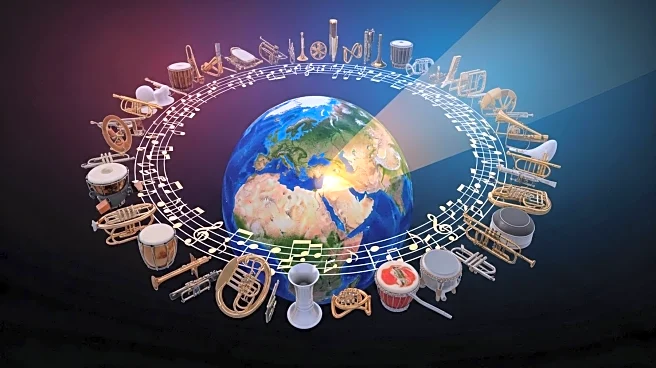What's Happening?
A campaign titled 'No Music For Genocide' has been launched by over 400 musicians and rights holders, urging music platforms to block access to their work in Israel. The initiative is a protest against what organizers describe as 'the genocide in Gaza.' Notable artists involved include Massive Attack, Rina Sawayama, Fontaines D.C., Primal Scream, Faye Webster, MØ, and Japanese Breakfast. The campaign is led by independent musicians and labels, but also includes artists signed to major labels. They are calling on industry giants like Sony, Universal, and Warner to follow suit, referencing these companies' previous actions in Russia following its 2022 invasion of Ukraine. The campaign aims to reject political repression and shift public opinion toward justice, drawing inspiration from other boycotts in film and international trade.
Why It's Important?
This cultural boycott represents a significant stance by the music industry against perceived human rights violations. By urging major music platforms to block access in Israel, the campaign seeks to leverage cultural influence to impact political and social change. The involvement of high-profile artists and labels highlights the growing intersection between art and activism. If successful, this boycott could set a precedent for similar actions in other industries, potentially affecting international relations and trade. The campaign underscores the role of cultural entities in advocating for human rights and influencing public discourse.
What's Next?
The campaign's success will depend on the response from major music platforms and labels. If companies like Sony, Universal, and Warner decide to participate, it could lead to a significant shift in how cultural boycotts are perceived and implemented. The initiative may also prompt discussions within the music industry about the ethical responsibilities of artists and labels in global conflicts. Additionally, reactions from political leaders and civil society groups in Israel and internationally could influence the campaign's trajectory and effectiveness.
Beyond the Headlines
The campaign raises ethical questions about the role of art in political activism and the responsibilities of artists in addressing global issues. It also highlights the potential for cultural boycotts to serve as tools for social change, challenging the normalization of actions deemed as crimes against humanity. The initiative may inspire similar movements in other cultural sectors, emphasizing the power of collective action in advocating for justice.









